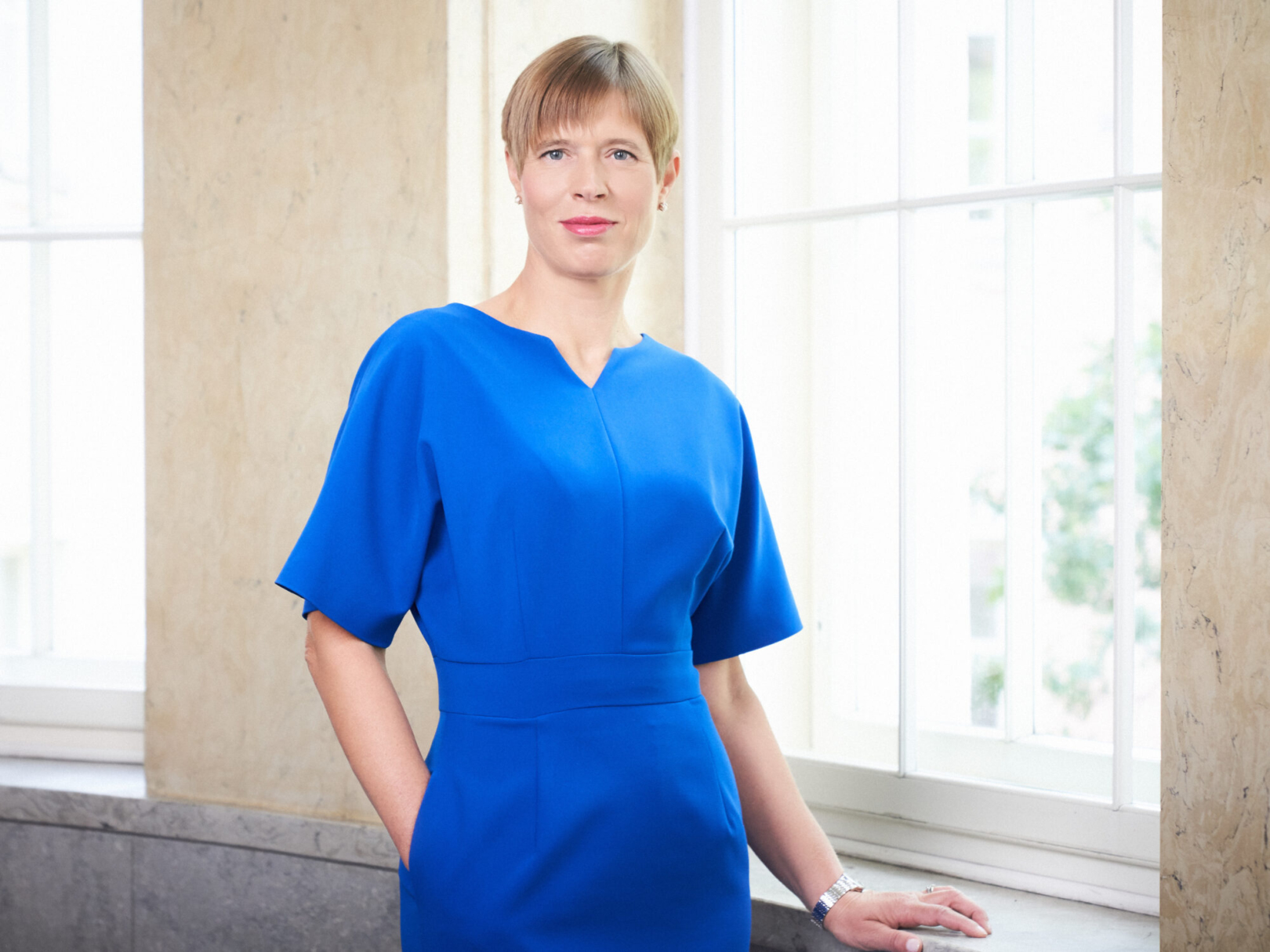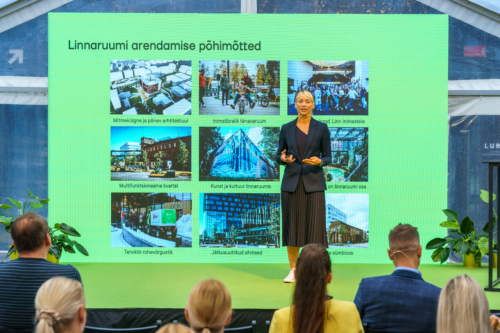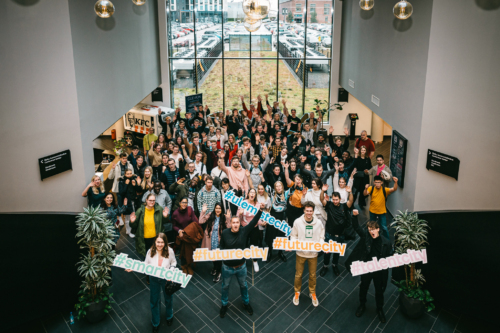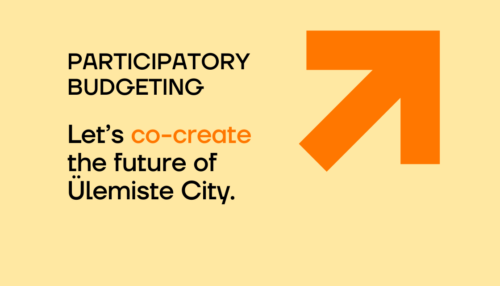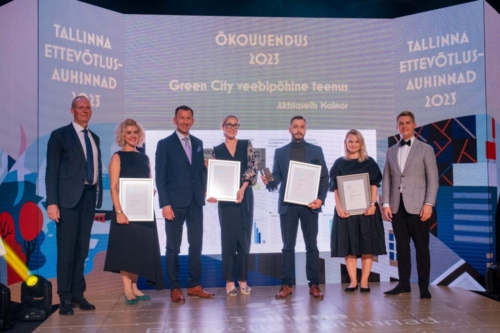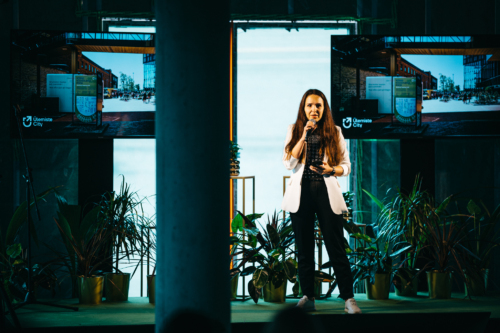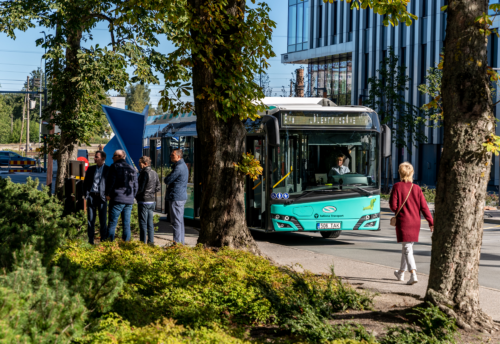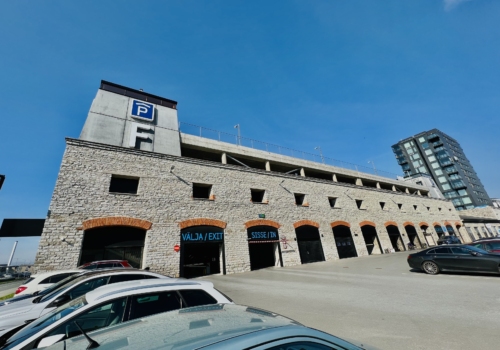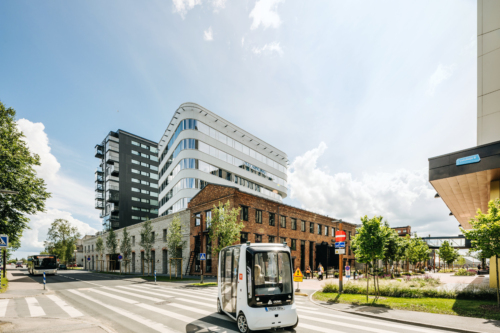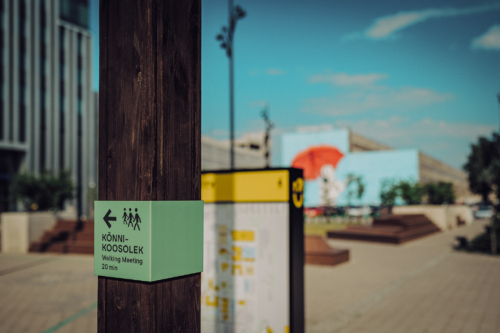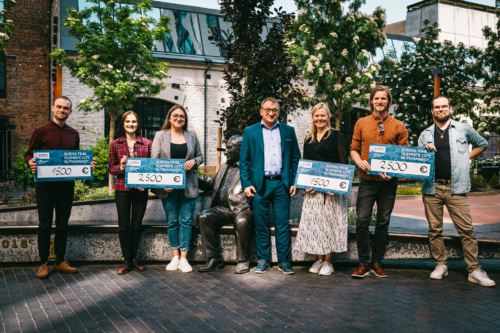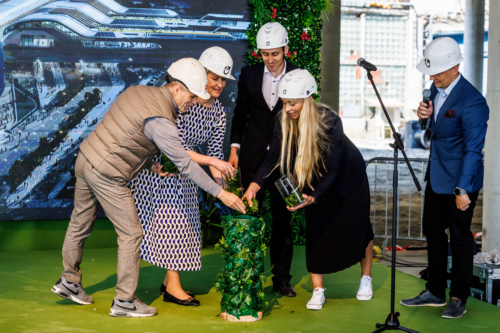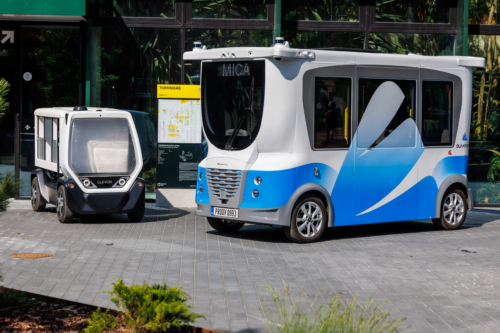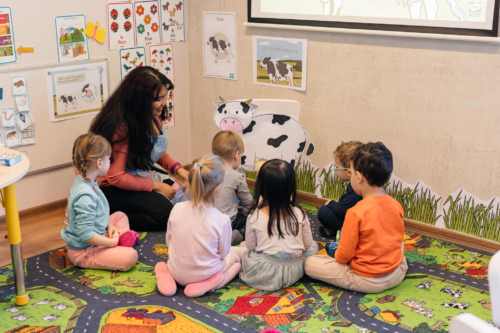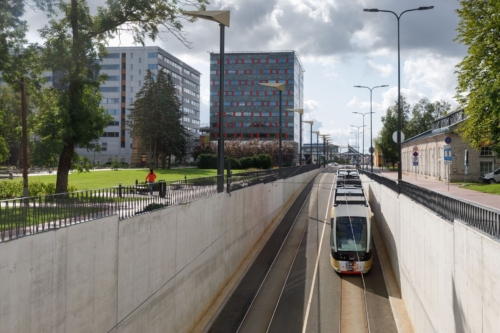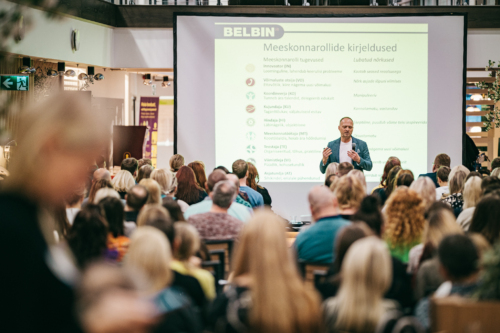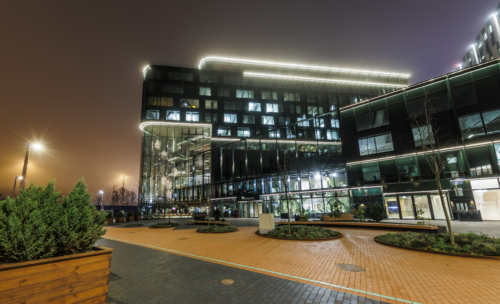President Kersti Kaljulaid: Companies possess the advantages to evoke changes
In her interview with the Green Tiger, President Kersti Kaljulaid said that it is impossible to proceed in the old-fashioned way, and that a transition is unavoidable. Sooner or later, this will be caused by new regulations, but also the increasing awareness of the consumer. The understanding that the early bird gets the worm is also increasing – the early birds remove regulative obstacles from their way and bring conscious consumers along by educating them and making them appreciate the values that the company itself shares.
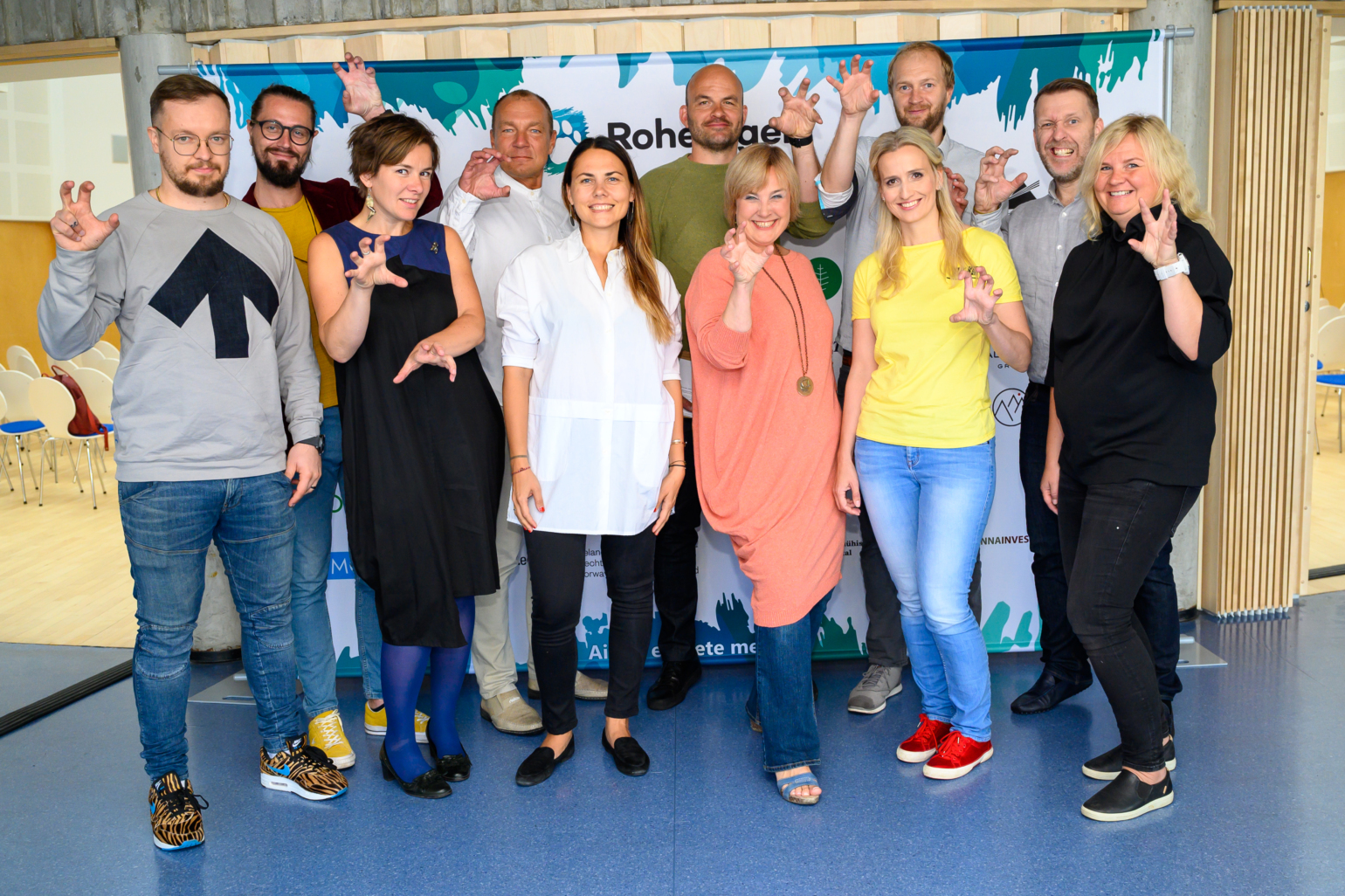
You have been President for four years; the environment and climate have been some of your main issues. The aim of the Green Tiger is a balanced economy; what do you think are the main challenges in the world and in Estonia that need quick intervention in order to achieve a balanced economy?
The biggest challenge in the economy and in the environment is satisfying the socioeconomic needs of all people, without overwhelming the environmental tolerance and systems supporting the life of the planet that we depend on. How does one find a universal, yet flexible solution that can be successfully implemented in any scale? How does one bend the values of the consumer?
The increasing inequality and the socioeconomic gap between different countries, but also between groups of society at different standards of living, is another burning issue. Without resolving this, we cannot talk about a balanced economy. More than 10% of the planet’s population continues to live in extreme poverty; they are even left without the basic necessities. Economic growth has decreased poverty, but the inequality has increased even further. In the modern world, there are numerous countries without a general lack of resources. However, this does not mean that available amenities reach everybody – it’s about sharing.
Bending the linear economy to become circular is an ambitious challenge – we possess the knowledge, but we still have not been able to achieve this. Regarding the implementation of circular economy, which is central in terms of the green economic model and sustainable development, everyone in the world is at the level of a developing country, and even a certain regress has occurred.
Creating a favourable environment for the green transition and removing regulative obstacles have become entangled. One reason seems to be the fact that policymakers do not understand what the problems actually are. It may be the case that politicians need an even stronger signal from society to make choices.
The need for the green transition is increasingly understood around the world, but our activities are still fragmented and ineffective, and often conflicting due to different views. If we manage to assemble science-based information and act in a coordinated manner, be an example, motivate and share experiences, then this is an accomplishment on its own.
Recently, the Green Tiger representative organisation was ceremoniously created; its purpose is to connect sustainable companies, to make a leap into the green future, together. What are your expectations for the Green Tiger representative organisation?
Initiators of the Green Tiger have already proven themselves with the successful project and made millions of people across the planet clean up after themselves. Even this idea seemed utopian at first. The need to and the consequences of picking up rubbish after yourself are universally understood, regardless of the living standard of people or the development level of countries. A whole other story is globally changing the value judgments of people regarding their standard of living, and the functioning of consumer culture and the economic model as a whole. Here, the size of countries, their development level, organisation of society, culture, and much more play a role. The Estonian circular economy has also taken steps backwards, and we have even applied mathematical trickery. Of our economy, below 5% is circular; in Europe, this figure is 12%.
Developing metrics of a sustainable economy that are scientifically justified and verified in practice likely have considerably higher potential. Metrics are more universal and can also be applied better in other fields as well. Traditional economic metrics have got in the way of time; they cannot account for environmental effects, principles of sustainable development, or adequately assess the wellbeing of people. These metrics are necessary for companies, themselves. Measuring sustainability is important so that actors have an overview of and motivational power from their efforts. But also so that society can assess their activity.
Keeping production and consumption in mind, it is perhaps globally more effective to contribute to local governments, especially cities, instead of companies. The world is urbanising quickly, and this brings along environmental issues equally as fast. At the same time, cities also possess an increasingly greater wish to contribute to a healthy and environmentally friendly living environment – even though cities cover just 2% of the land of the planet, they consume over 75% of natural resources and create 85% of the global GDP. More than half of the world’s population lives in cities and by 2050, this figure is expected to be 80%. By increasing the number of well-informed consumers, the way to companies may be a bit easier.
In any case, the project can be considered a success if something perceptible and practical is accomplished in Estonia.
Both around the world and in Estonia, we can still see countries debating in the halls of bureaucracy, but many entrepreneurs, specifically, have picked up the ball and started to reform the economic space, looking for opportunities to create the services and products more sustainably. What do you think, do Estonian entrepreneurs possess enough strength and willpower to cooperate and implement these changes?
There is no doubt that Estonian companies have this potential. Companies have certain advantages in bringing about changes: the necessary cash flows, a connecting link between the consumer and the public authority, and the regulations of the latter. Now, recovering from the peak of the crisis, it is the perfect time to start acting, and to reorganise one’s activities.
This shift, where companies see opportunities, rather than risks, has already partially occurred by today. And if at first, they try to do old things in new ways, then the time of doing new and right things is probably not far away, and the new business model will bring about a competitive advantage. Obstacles will certainly occur in practice, but these can successfully be resolved by cooperating.
I believe that there are increasingly more companies that are willing to forego short-term benefits in the name of long-term revenue and sustainability. It is impossible to proceed in the old-fashioned way and a transition is unavoidable. Sooner or later, this will be caused by new regulations, but also the increasing awareness of the consumer. The understanding that the early bird gets the worm is also increasing. The early birds remove regulative obstacles from their way and bring conscious consumers (whose proportion is constantly growing) along by educating them and making them appreciate the values that the company itself shares. A voluntary change enables one to guide some trends and shape the environment.
Inspired by the Tiger Leap, could the Green Tiger be an example to the whole world as a creator of the vision of a balanced economy, a unifier and an executor?
Becoming an example for the world is, of course, an ambition worth recognition, but there are many obstacles to this that have been mentioned before. This is why we should, perhaps, deliberate over involving a larger partner with international dimensions, or cooperate with European Union institutions or major corporations, for example.
Visions of a balanced economy have actually been developed before; what we lack is the practice of implementing them.
We should focus on the quality of products, unnecessary consumption and wastage (food, clothes, technological gadgets). Today, useless and low-quality goods are being produced, for which they find a buyer because they have the money, and buying increasingly seems like entertainment; a mood, not necessarily a rational need. Consumption has become an end in itself.
The relationship between economic activity and environmental quality is very complex in its nature. It is difficult just to define, and even more difficult to meaningfully measure the size of economy or the quality of the environment. Therefore, our understanding of relations between the economy and the environment is mainly approach-based. Political-ecological analyses often uncover the fact that consumption and damaging production processes are not something immutable or unavoidable, but are rather a result of constantly changing political, economic and cultural decisions.
The Green Tiger deserves recognition as a bold endeavour, and hopefully we can see the results of it in the near future as well.
